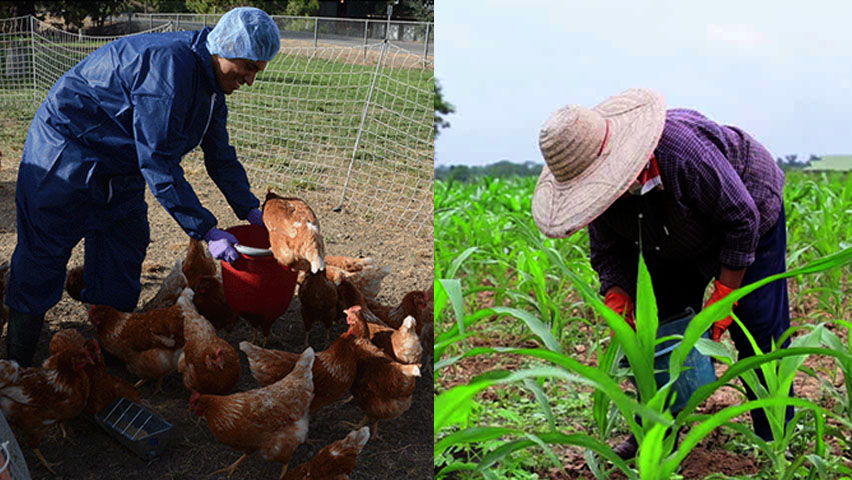
“Maraming salamat po sa tulong ng Department of Agriculture (DA) sa aming magsasaka at nag-aalaga ng baboy. Bibili po ako ng manok para paramihin at makatulong sa pang araw-araw na buhay.”
That was Mario Edna, one of the hundreds of small swine raisers in the province of Isabela, who received indemnification from DA for his pigs culled due to African Swine Fever (ASF) infection.
Another recipient, Nirma Escalante said she will use a portion of the P25,000 ASF indemnification money to raise native chicken and buy fertilizers for her corn farm.
“Pinaplano ko pong bumili ng mga manok para sa aking kabuhayan at ibibili ko ng abono para sa 1.6 na ektaryang maisan,” Escalante said.
The two were among the dozens of beneficiaries in Isabela of DA’s ASF indemnification fund, as their backyard hog farms were inflicted with ASF, gravely affecting their livelihood and source of income.
Upset by the loss caused by the disease, Edna and Escalante were ecstatic upon receipt of the financial aid, at P5,000 per culled pig, which they will use as start-up capital for alternative livelihoods, such as poultry raising, other livestock-related enterprises, and corn farming.
The cash assistance is part of the P5.78 million in ASF indemnification fund made available to affected hog raisers in Cagayan Valley through the DA’s regional field office 2, led by Director Narciso Edillo.
He said the DA-RFO2 has yet to pay compensation to 56% of the 430 ASF-affected farmers who surrendered their hogs for depopulation. Totaled culled pigs have reached 2,758 head, needing another P8M in indemnification fund, Edillo added.
To date, the country continues its battle against the dreaded ASF, with the DA and the Bureau of Animal Industry (BAI) on top of managing, containing, and controlling outbreaks through strict implementation of biosecurity measures, in partnership with swine raisers and local government officials and veterinarians.
A composite team of DA-BAI, DA-RFO, and provincial and municipal veterinarians and animal health workers continuously undertakes regular monitoring activities to ensure that biosecurity measures are in place and that reporting of hog diseases is a must.
“We have established a strong partnership with the LGUs and the private sector in executing these efforts. Based on the latest reports, about 300,000 hogs have already been culled, which is barely two and a half percent of the country’s hog population,” Agriculture Secretary William Dar said.
“While our joint efforts to manage, control, and contain ASF are paying off, we are will do our utmost to revive the country’s swine industry by implementing a re-stocking program, initially allotting P400 million for the purpose,” Secretary Dar said.
The DA remains vigilant, as monitoring activities continue to prevent a possible outbreak, especially after reports of a new ASF strain from China that can affect humans surfaced, the DA chief added.
“Even with our standing prohibition for China pork and processed products to enter our country, we remain pro-active and so we have tightened our monitoring efforts even more — at all airports and seaports,” Secretary Dar said.
He added that the DA will continue to work closely with the Bureau of Customs to prevent smuggling of pork products from China and other ASF-affected countries, as it looks forward to constructing the country’s first border inspection and multi-commodity quarantine facility, called the Agriculture Commodity Examination Area (ACEA) and crematorium, in Manila next year. ### (Adora Rodriguez, DA-AFID)













